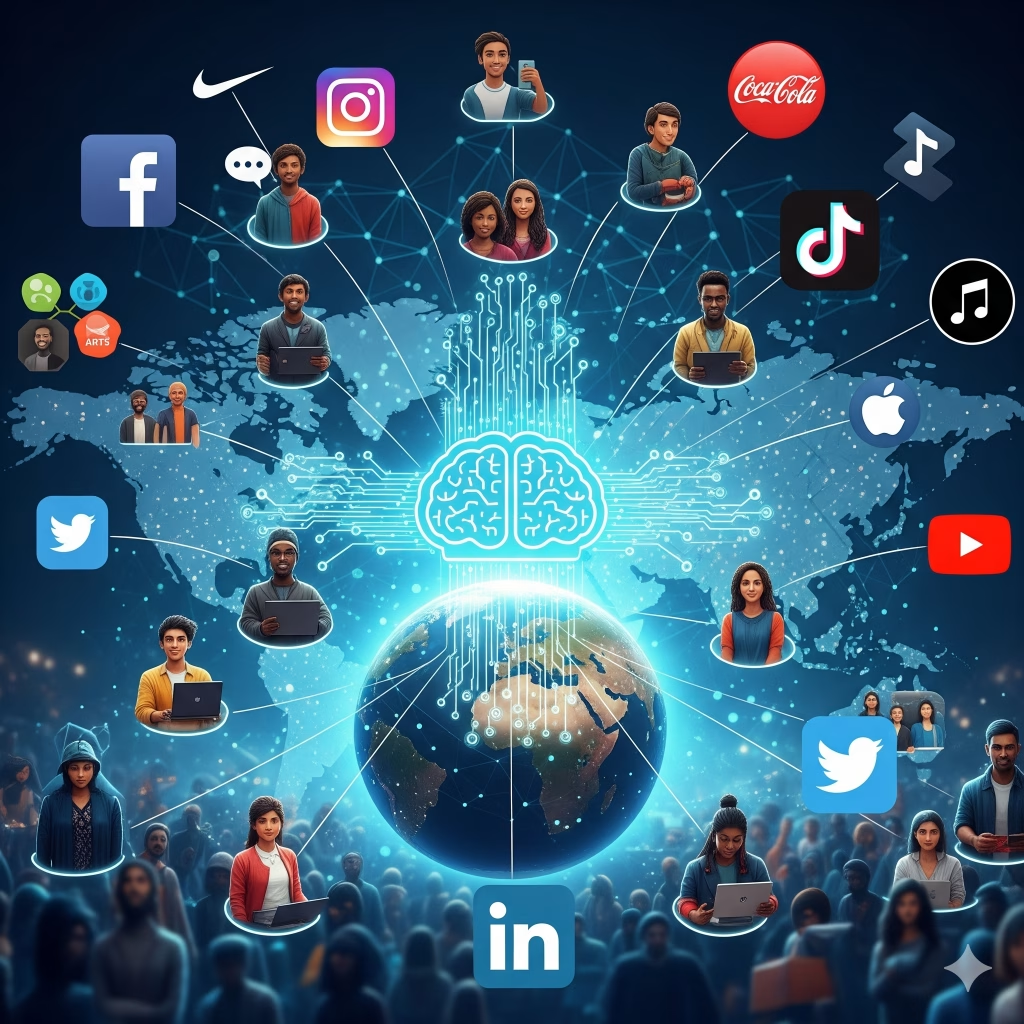
Social Media Monetization
Social media shapes cultural norms and public discourse, influencing language, trends, and behaviors across demographics and geographies. Platforms foster communities where shared interests, ideologies, and practices converge, creating subcultures that exist entirely online and exert influence in the offline world. Memes, viral videos, and trending challenges illustrate how social media drives participatory culture, where users are both consumers and creators, actively shaping content landscapes. Social media also provides unprecedented access to global events, enabling real-time reporting, citizen journalism, and grassroots mobilization that can rival traditional media channels. Brands engage with cultural trends through strategic campaigns, influencer partnerships, and user-generated content, turning social media into a dynamic marketing and cultural intersection.

Economic Dimensions of Social Media
The economic impact of social media is significant, from advertising revenue to e-commerce integrations and influencer monetization. Platforms track user engagement to deliver targeted ads and sponsored content, allowing companies to maximize ROI through precision marketing. Influencer marketing has emerged as a core revenue stream, with creators leveraging followings for brand collaborations, product placements, and affiliate marketing programs.

Small businesses and startups increasingly rely on social media for cost-effective exposure, leveraging organic reach and viral potential to compete with established competitors. E-commerce integrations on platforms like Instagram Shop and Facebook Shops create direct revenue channels, making social media both a marketing and sales platform.

Regulation, Ethics, and Governance
Regulation of social media is an ongoing challenge, balancing free expression with accountability, privacy protection, and misinformation mitigation. Legislation such as the GDPR in Europe exemplifies efforts to protect user data, while governments explore platform accountability measures for content moderation. Ethical concerns include algorithmic transparency, bias, misinformation, and exploitation of user data for commercial or political purposes.

Technologists and social scientists advocate for ethical design principles, promoting user agency, informed consent, and equitable access across populations. Global governance discussions emphasize collaboration between platforms, regulators, and civil society to ensure social media contributes positively to democratic and social objectives.
WEB DESIGN FOR BETTER HOOK ON SOCIAL MEDIA PAGES: CREATIVE ADs, BANNERS & HERO SECTIONS
Social media consists of digital platforms that enable users to create, share, and interact with content, connecting people, communities, and organizations worldwide. It has transformed the way we communicate, shaping cultural trends, and influencing how news and information spread globally. Platforms like Youtube, Facebook and Instagram exemplify this shift.

Social media is not limited to personal interaction; it serves as a professional and commercial ecosystem where brands and influencers cultivate identities, communities, and networks for engagement and growth. Algorithms drive the content users see, prioritizing posts based on engagement, relevance, and personal preferences, creating a tailored experience for every user on platforms like TikTok.
For businesses, social media functions as a marketing engine. It allows precise audience targeting, campaign analytics, and direct interaction with consumers, making it an essential tool for growth and brand building. Individuals leverage social media for self-expression, networking, and information gathering, contributing to digital cultures that evolve rapidly and influence real-world behaviors and decisions. Viral trends and content amplification illustrate the platform’s power, where a single post can reach millions within hours, shaping conversations, public opinion, and sometimes even policy decisions. Social media has a measurable economic impact. Advertising revenue, influencer marketing, and e-commerce integrations demonstrate the monetization opportunities inherent in platforms such as LinkedIn and Instagram.
Social media also presents challenges. Misinformation, echo chambers, privacy risks, and algorithmic bias create complex social and regulatory questions that users, governments, and technologists must navigate carefully. Understanding social media requires a multifaceted approach, examining its technological infrastructure, psychological effects, and cultural implications while remaining aware of the opportunities and risks it presents.

Psychological and Behavioral Effects
Social media influences individual psychology, affecting attention, self-perception, and social behavior through mechanisms such as likes, shares, and comments. Algorithms optimize for engagement, often creating feedback loops that reinforce certain behaviors, emotional responses, or content preferences. Studies show social media can both positively and negatively affect mental health, promoting social connection while potentially exacerbating anxiety, comparison, or addiction. Understanding these effects is essential for users, brands, and policymakers, guiding responsible platform design, content moderation, and digital literacy initiatives. Social media usage patterns reveal insights about demographics, cultural values, and technological adoption, providing valuable data for research, marketing, and governance.
Future Trends in Social Media
Emerging trends include augmented reality (AR), virtual reality (VR), and AI-driven content personalization, which promise more immersive and adaptive social experiences. Integration with e-commerce, blockchain-based digital ownership (NFTs), and decentralized social networks are reshaping monetization and control structures. Micro-communities and niche platforms are gaining popularity, emphasizing quality engagement over mass reach, while creators seek sustainable revenue and brand independence. Predictive analytics, AI moderation, and content recommendation systems will increasingly shape user experience, balancing engagement with safety and authenticity. The evolution of social media reflects the broader trajectory of digital communication, where technology, culture, and commerce intersect to redefine human interaction, identity, and influence.


